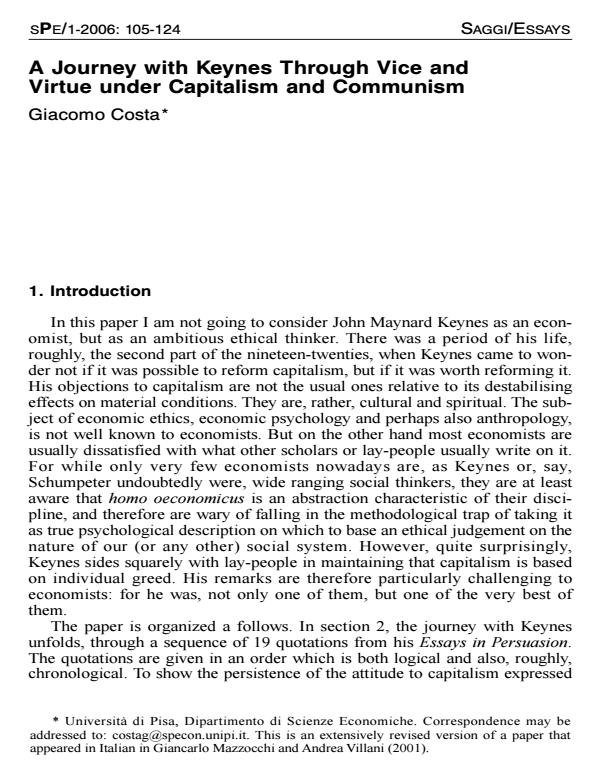A journey with Keynes through vice and virtue under capitalism and communism
Titolo Rivista STORIA DEL PENSIERO ECONOMICO
Autori/Curatori Giacomo Costa
Anno di pubblicazione 2006 Fascicolo 2006/1
Lingua Italiano Numero pagine 20 P. Dimensione file 111 KB
DOI
Il DOI è il codice a barre della proprietà intellettuale: per saperne di più
clicca qui
Qui sotto puoi vedere in anteprima la prima pagina di questo articolo.
Se questo articolo ti interessa, lo puoi acquistare (e scaricare in formato pdf) seguendo le facili indicazioni per acquistare il download credit. Acquista Download Credits per scaricare questo Articolo in formato PDF

FrancoAngeli è membro della Publishers International Linking Association, Inc (PILA), associazione indipendente e non profit per facilitare (attraverso i servizi tecnologici implementati da CrossRef.org) l’accesso degli studiosi ai contenuti digitali nelle pubblicazioni professionali e scientifiche.
There was a period of his life (1925-30) when Keynes came to wonder not if it was possible to reform capitalism, but if it was worth to reform it. Keynes thought that ” the essential characteristic of capitalism” was “the dependence upon an intense appeal to the money-making instincts of individuals”, and despised them. However, economists usually think that homo economicus is an abstraction characteristic of their discipline, not a true psychological description on which to base an ethical judgement. Why did Keynes, a foremost economist, side on this issue with laypeople and not with his colleagues? The question arises if he was somewhat traditional in his moral evaluation of capitalism, and naive and out of date in his sociological understanding of it. Analysis of his writings on this issue, and comparison with those by Schumpeter, Knight, and Max Weber, leads to a positive answer to it.
Giacomo Costa, A journey with Keynes through vice and virtue under capitalism and communism in "STORIA DEL PENSIERO ECONOMICO" 1/2006, pp , DOI: